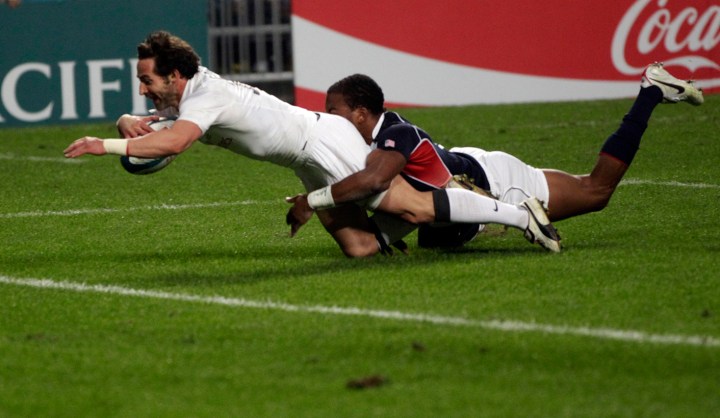Africa
Sevens Up: USA’s rise in Sevens can only be good for rugby

The USA made history over the weekend when they won the London Sevens, beating Australia rather emphatically in the final. It’s a plan that’s been in the making for the last three years, and rugby is growing massively in the States. In the greater scheme, that can only be a good thing. By ANTOINETTE MULLER.
Pop quiz: who are the Olympic champions in rugby? Answer: The United States of America. This, of course, was almost a century ago, and only three nations (the USA, Romania and France) participated back then.
While that answer might surprise a few passive sports fans, not many will be surprised to hear who won the London Sevens this weekend: again, the USA.
An emphatic 43-12 victory over Australia in the final on Sunday saw the States clinch their first-ever Cup and ignited fears that soon the chant of USA, USA, USA might ring around rugby stadiums across the globe. The Eagles finished sixth overall on the World Series log, their highest-ever position on the table and the first time they finished better than 10th. Their rise has been steady, but meticulously mapped out.
Since 2012, a number of male and female Sevens players have had contracts funded by the US Olympic Committee to help the team build towards the dream of winning gold at Rio 2016. The team trains full-time at the Olympic Training Center in Chula Vista, California. Back then, the team said their goal was to be in the top four by 2015 to set them up for that gold medal next year. Although they have missed out on that for now, Sevens holds tremendous potential for the rugby market. The potential for generating revenue is immense and playing friendlies or exhibition games in America, with a market that clearly has an appetite for it, holds real potential for those who are willing and able to think slightly out of the box.
But it’s not just Sevens that’s growing in America. Although a professional league in the USA is yet to materialise, it’s been on the cards for quite some time and rugby is steadily rising in the USA. Some say rugby is the fastest-growing sport in US high schools, with a 15 percent growth rate annually. Over 98,000 people are registered members of USA Rugby, with over 32,000 men and close to 12,000 women participating at senior level. That is just a fraction of the estimated 318.9 million Americans who live in the country, but it’s the rapid growth that makes these numbers significant. The USA leg of the World Series Sevens tournament has increased from 15,800 back in 2004 to over 50,000 in recent years. Rugby in the states is booming and there’s no stopping it.
On the whole, the expanding global market is a good thing. A bigger audience means a potentially bigger revenue pool through broadcasting deals. That broadcasting money can then trickle down to the teams and countries who need it to grow the game. Expansion also means the potential for job opportunities, in a number of spheres, and most importantly, for players.
But those opportunities will not come without caveats. If rugby continues to grow at this rate, then it won’t be too long before a professional league is set up in America. A professional league in the USA could spell danger for some of South Africa’s franchises, though. A weak currency means that, in most cases, South Africa struggles to compete with lucrative contracts offered by Europe and some countries in Asia. Adding America to the mix will only make the challenge of keeping players in South Africa more difficult.
But such is the nature of the global sporting beast, and this where South Africa will have to box clever. There is already talk of South Africa’s Super Rugby franchises seeking partnerships with Japanese clubs to allow some of their players to ply their trade in Japan during the Currie Cup season. Similar exchange agreements with clubs in the USA, once the professional league materialises, holds massive potential not just for players to bridge their earning gap, but in terms of revenue for the unions. In modern day sport, the money is all in the broadcasting and allowing some of the USA’s players to take part in either Super Rugby or Currie Cup could entice American broadcasters to buy into some of South Africa’s domestic rugby and boost the coffers of unions –which will not only allow them to pay players more, but also grow the game at development level in South Africa.
For some time now, there have also been murmurs about the USA starting a professional Sevens league, but that’s yet to materialise. Whoever is brave enough to take on something like this could be rugby’s Kerry Packer; only this time, nobody can say that they didn’t see it coming, or that they weren’t warned. DM
Photo: Ben Gollings (L) of is tackled by Shalom Suniula of United States during their match on second day at the Hong Kong Sevens Rugby Union tournament in Hong Kong, China, 26 March 2011. The Hong Kong Rugby Sevens will take place until March 27. EPA/YM YIK
















 Become an Insider
Become an Insider